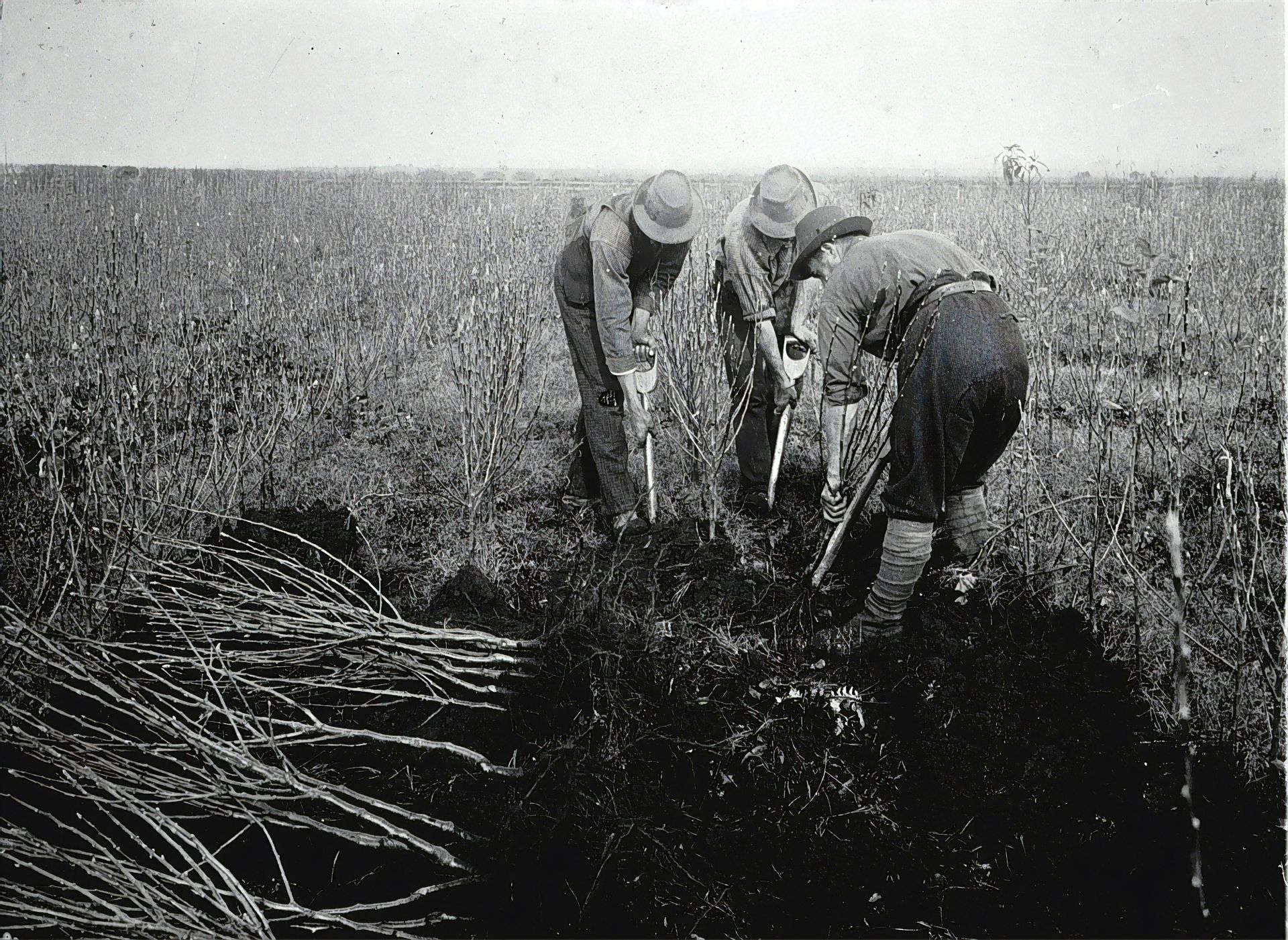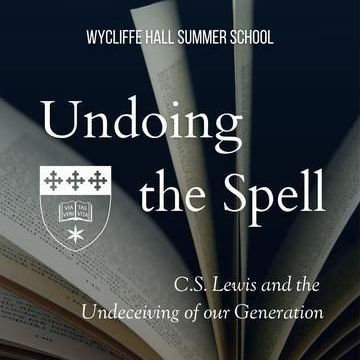Practicing what I Preach... by Preaching what I Teach (An Advent Sermon on Micah 5)
I'm preparing a class on preaching different parts of the Bible (i.e. the Psalms vs. the prophets vs. a gospel reading... you get the idea). One thing I'm a big believer in is preaching the text as we find it in its context. So if it's an Old Testament passage: preach it so! We won't understand how Jesus fulfills the Law and the Prophets if we don't know what they say to begin with. Long story short: I came across this sermon from Advent (2021, I believe) on Micah 5:2-5. I don't know if I'd preach it this way again, but I did the best I could!
******
Imagine living in a world far from this one. Imagine that in this world, people have grown accustomed to life a certain way. From the early promise of its dawning, the early years of this world had been full of optimism, but slowly over time, a certain darkness crept in, such that by the time you find yourself in it, there is a lot about which to be upset. Like so many worlds, this particular one has those with more and those with less. The leaders have increasing amounts of property and land and the people at large? Far less so. Some have an abundance of wealth, possessions and food. Many do not and live from day to day. Over time those with more took from those with less. They seized the possessions of those with few, simply because their greed was unbridled and they told themselves they deserve it. These leaders might be even described as cannibals, such is the way they fed off the people. And they have become so blind to their wrongs and indulgent of their desires they declare “peace” and that all is well when they’ve eaten a good meal… yet their serenity turns to relentless violence if they have to miss just one meal.
They give advantage when advantage is given to them – they’ll take a bribe here or there for friend or neighbor (if the price is right) and then give biased judgments to those who’ve padded their pockets. They use all kinds of tactics to cheat others for financial gain, to expand their portfolios and properties. And as their self-indulgence abounds, their consideration of others diminishes and they reach a place where anything other than co-operation with their wants is a threat to their sanity and liberty. They have greedy hearts and violent hands.
The religious institutions are scarcely any better in this particular world. Religious leaders have long since abandoned such concepts as integrity and accountability. They tickle the ears of the ruling classes with words that soothe and cheaply satisfy. And so those acting unjustly become accustomed to thinking God only has good things to say and not that they might be transgressing His law. They may have crossed the line between good and evil but no one has eyes to see it.
And then.
Then one day, you hear something awful is going to happen. Despite being so sure that God was on their side, no matter how they behaved or who was hurt in the process, God will seemingly abandon them entirely. The country will be invaded by a foreign people with foreign ways. The ravages of war will unfold in city after city. Places of worship will be burned down to the ground. Wealth will be plundered. Places of beauty and riches left in squalor and ashes. And the people will be left hurting, shaken and traumatized.
But… but evil will have been purged form the land. Those corrupt leaders will be gone—many physically removed as prisoners of war—as well as those of wealth and means. And what is left will be little more than rubble.
God will finally deal with the evil perpetrated by this people. Their corrupt practices will be no more. No more injustice. No more oppression of those with less. There will be no more bribes given nor false prophecies heard.
But the absence of evil doesn’t always mean the preponderance of good. So what will happen next? The old will be gone. But what then? Your country will be broken, desolate. And you could be forgiven for thinking God will have forgotten you.
***
And then you recall Micah’s words in chapter 5.
For as you’ve may have realized, this is not a country from another world, but the story of Israel. The people who God rescued from being slaves in Egypt and brought to their own country. The same people who then would not give Him the worship of their lives but rebelled against God and acted hatefully and unjustly towards others. And, yes, it was this people who were subjected to judgement through the exile as God gave them over to themselves and the hands of foreign nations.
Micah’s prophecies date to 150 years before this exile, and they describe the ways in which evil and oppression had become rife within Israel’s society. They anticipate the destruction that would come, and the cleansing of the land that will result. That God is not a passive bystander and will not let evil and those who participate in evil continue forever. That God is just.
And in His pursuit of justice, God will not only wipe out evil, but even as He judges and condemns the injustices, He promises hope and salvation for the faithful.
For despite however broken and desolate the land would be, Micah 5 offers hope. It says that something new, something different is on the horizon. Not just someTHING but someONE who would bring about a kingdom that Micah 4 tells us will be quite different to the kingdoms and empires we naturally build: it will be a safe haven for the lame and broken. And this Someone would rule them with generosity and kindness. He wouldn’t steal land or property from his people. He wouldn’t tip the scales of justice to advantage some over others. And this was no flash in the pan solution. This one was actually part of God’s plan all along, even from the very beginning. This anointed Someone would bring his people back to their homeland. He would be a good shepherd, he would feed and nurture the people through God’s strength. He would keep them safe and enable them to live lives in peace.
Even in the tragedy and hopelessness of all the pain to come, God had not forgotten to rescue his people. The hope of someone to save was not an ‘add-on’ or a consolation. It was always the plan—and it gave hope to carry the faithful through what was to come. He had not forgotten His covenant. His judgment was given in order that He might then establish the kingdom He had promised.
Yet those heard the promise the one to come in Micah 5 had no sense there was anything to worry about. They were still entrenched in their sin with most in willful denial, with Micah’s words of destruction seeming far-fetched and impossible to the life they were living.
But there were some—maybe just a few—who do listen. There are some who “have ears to hear.” There are some who don’t buy into the empty promises of the religious leaders who would say “everything is fine! You’re good as you are!” They hear Micah’s words that God is working to wipe out evil, and despite the horror they are grateful God is not blind or passive in the face of such wrong. They understand that evil is evil and sin needs confronting. But if they were in any doubt, these words from Micah 5 reassure that despite the tragedy that was to strike, God had not abandoned them. There was hope. God was not gone forever. God is still at work. God would be able to weave the exile into the tapestry of His work of redemption, a work which would be completed and renewed with the anointed one to come. And Israel wouldn’t need to be to be strong for this to happen – it would start in Bethlehem of all places. When everything gets to that place of desolation and emptiness, when the nations around them mock them and think that the story of Israel is over—God’s anointed will come. And so the faithful believer can say the words of Micah in 7:9 for themselves:
I must bear the indignation of the Lord,
because I have sinned against him,
until he takes my side
and executes judgement for me.
He will bring me out to the light;
I shall see his vindication. (7:9)
***
Now this may not be a very seasonal sermon to your ears. It might not feel like the stuff of the holidays or be showing much ‘Christmas spirit.’
But here’s the rub. Despite what all the Hallmark movies and pumpkin spice drinks you can down might tell you, Advent is actually a time to remember we are a people in desperate need of a savior. We act in evil, unjust, corrupt and self-indulgent ways. We all to easily corrupt the faith we've inherited. And while many may continue in denial and fantasy—that God looks on us and says we’re blessed because we’ve just eaten a good meal and our bank balance is healthy—the truth is often the opposite. For the only one who is ready to receive what we are offered in the manger is the one who has a growing distaste for sin, injustice and evil, is willing to face their own part in it and its consequences… and is hungry for the good news of salvation.
The hope we have in our Savior is that we can leave our corrupt hearts at the Cross for He has taken our judgment on Himself. We do not have to live in exile forever, we can come and live under the power of the Good Shepherd who will feed and guide us and show us His way, the way that brings peace.
There is immense hope for those who have the ears to hear. That God does not ever forsake or abandon his people—even in the depths of our rebellion. No matter what we’ve done, no matter who we’ve been, no matter how we’ve treated others, there is hope for those willing to lay it aside and place themselves under the rule of one who didn’t claim power for himself but laid it down for others.
So will we hear these words of promise from Micah 5 in their rightful context: hope that encourages us to be able to face the reality of our evil and injustice because we know that in it God will not abandon us. There is no sin so great that His mercy can’t overwhelm it. We can receive the Savior again.
God did not abandon Israel in their sin but offered hope to the one willing to listen. He does not abandon you if you do likewise. And I pray that as our Lord and Savior comes to us this Christmas, you will have the courage to do so, and see the promise in Mary's words:
His mercy is for those who fear him
from generation to generation.
He has shown strength with his arm;
he has scattered the proud in the thoughts of their hearts.
He has brought down the powerful from their thrones,
and lifted up the lowly;
he has filled the hungry with good things,
and sent the rich away empty.
He has helped his servant Israel,
in remembrance of his mercy,
according to the promise he made to our ancestors,
to Abraham and to his descendants forever.
******



